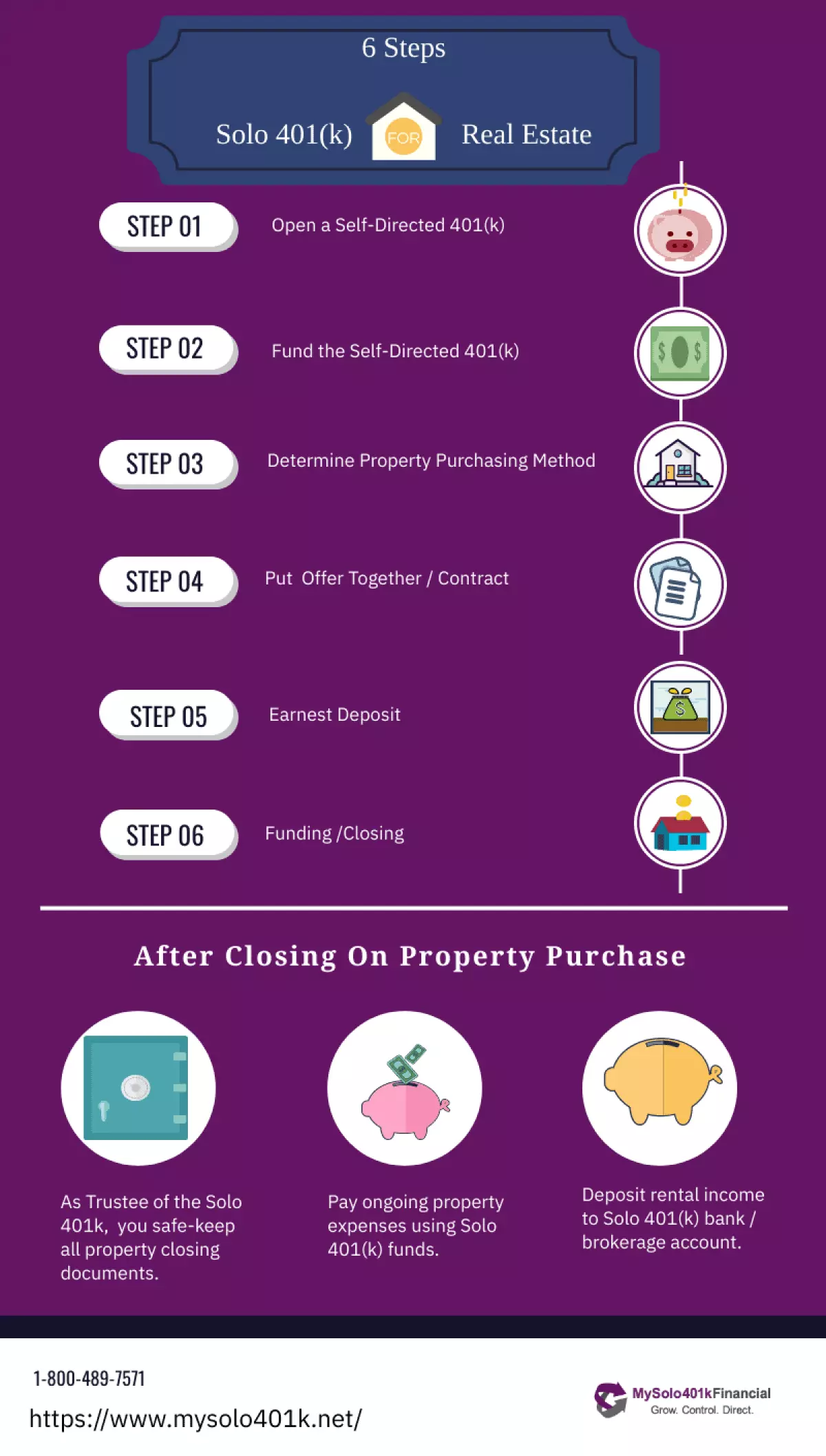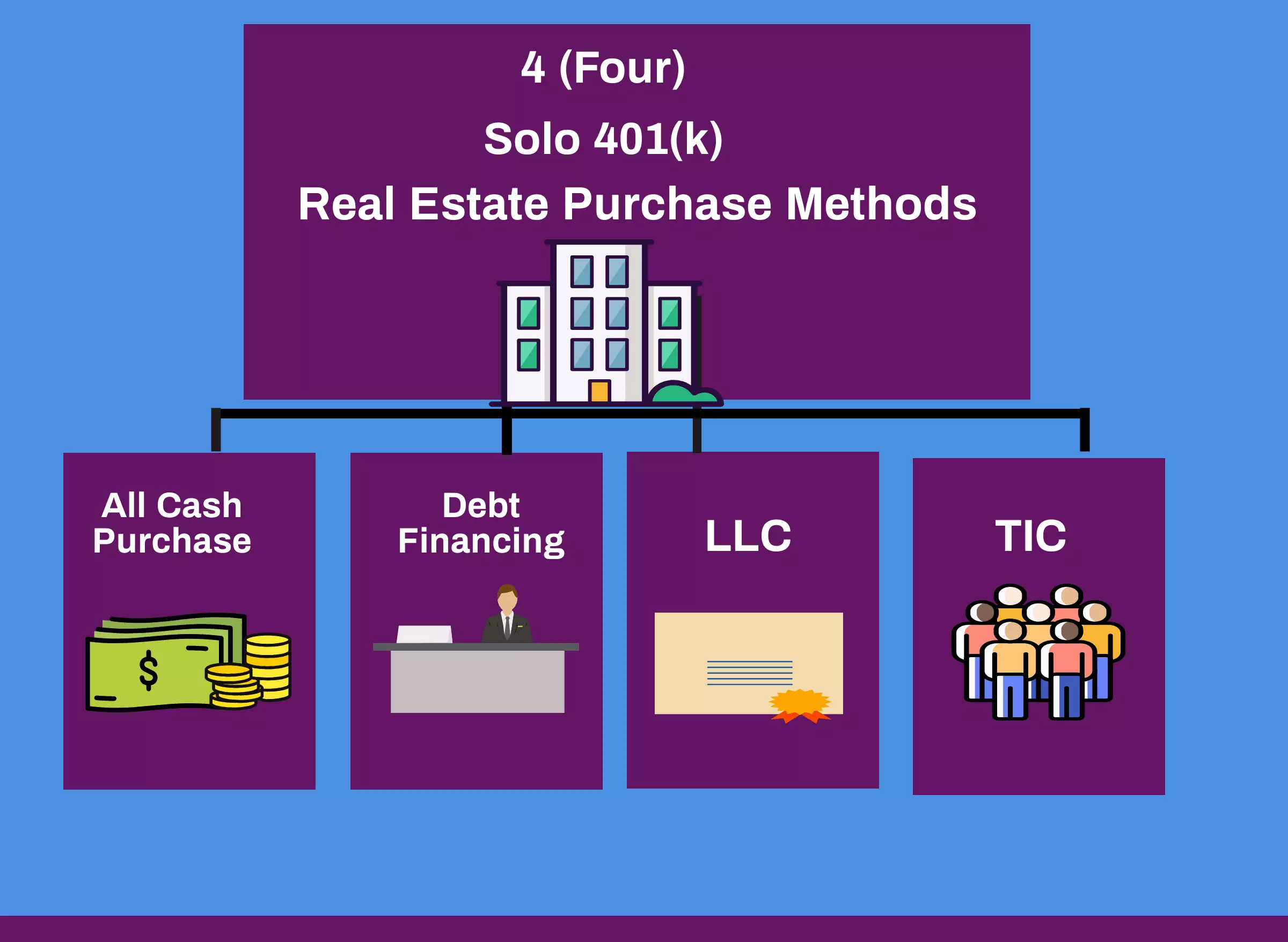
Investing a self-directed 401(k) in real estate can be an excellent way to diversify your retirement portfolio and potentially yield higher returns. However, it's crucial to understand the procedures and specific IRS rules involved in this process. In this comprehensive guide, we will walk you through the step-by-step procedure of investing your solo 401k in real estate.
Opening a Self-Directed Solo 401k
The first step is to open a self-directed solo 401k. It's important to note that the real estate purchase offer must be made in the name of the solo 401k plan. To comply with regulations, all fees, including the escrow deposit, must be paid with solo 401k funds.

Once you have adopted the self-directed 401k plan by signing the necessary documents, you can proceed with making the property purchase offer in the name of the solo 401k. The plan can be funded in various ways, such as making annual contributions, transfers from other qualified plans, or direct rollovers from Traditional IRAs, SEP IRAs, and SIMPLE IRAs. Keep in mind that funding the solo 401k plan can take several business days due to processing times.
Methods of Investing a Solo 401k in Real Estate
There are generally four methods of investing a solo 401k plan in physical real estate, each with its own set of rules. It's essential to understand these methods and choose the one that aligns with your investment goals.

To learn more about each of these four real estate investment methods using solo 401k funds, click here.
All Cash Purchase and Closing
If you decide to proceed with an all-cash purchase using solely solo 401k funds, you will list the Solo 401k as the buyer in the purchase documents. Remember that the Solo 401k is a separate entity from you, and its name must be listed on all the purchase documents.

To comply with IRS solo 401k rules, the earnest deposit should be made using solo 401k funds, not personal funds. At closing, as the trustee of the solo 401k, you will sign the rest of the property purchase documents and submit them to the closing agent along with a check or wire transfer from the solo 401k bank account for final funding.
Ongoing Requirements and Expenses
After successfully investing your self-directed 401k in real estate, it's important to understand the ongoing requirements. All property expenses, such as property taxes, repairs, and HOA dues, must be paid from the solo 401k bank or brokerage account. Never use personal funds for these expenses, as it would be considered a prohibited transaction according to solo 401k rules.
It is crucial to maintain enough liquid cash in the self-directed solo 401k to cover ongoing property expenses. Additionally, rental income and proceeds from the sale of the property must flow directly back to the solo 401k plan.
Financing Options and Rental Income Reporting
If you find yourself short on funds in your solo 401k account, you have the option to obtain a non-recourse loan for financing. This can help bridge the gap and allow you to invest in real estate even with limited funds.
For rental income reporting, if the property is rented to low-income tenants, the government agency responsible for payment should issue a 1099-MISC. The rental income will flow back to the solo 401k and maintain its tax-deferred or tax-free status. Make sure to provide the necessary documentation, such as a completed W-9 form, listing the plan name and EIN when required.
For more frequently asked questions related to real estate investment, you can visit here.
Investing a self-directed solo 401k in real estate can be a lucrative venture. By following the proper procedures and understanding the IRS rules, you can leverage the potential benefits of real estate investments within your retirement portfolio. Remember to consult with qualified professionals for personalized guidance and to ensure compliance with all regulations.











